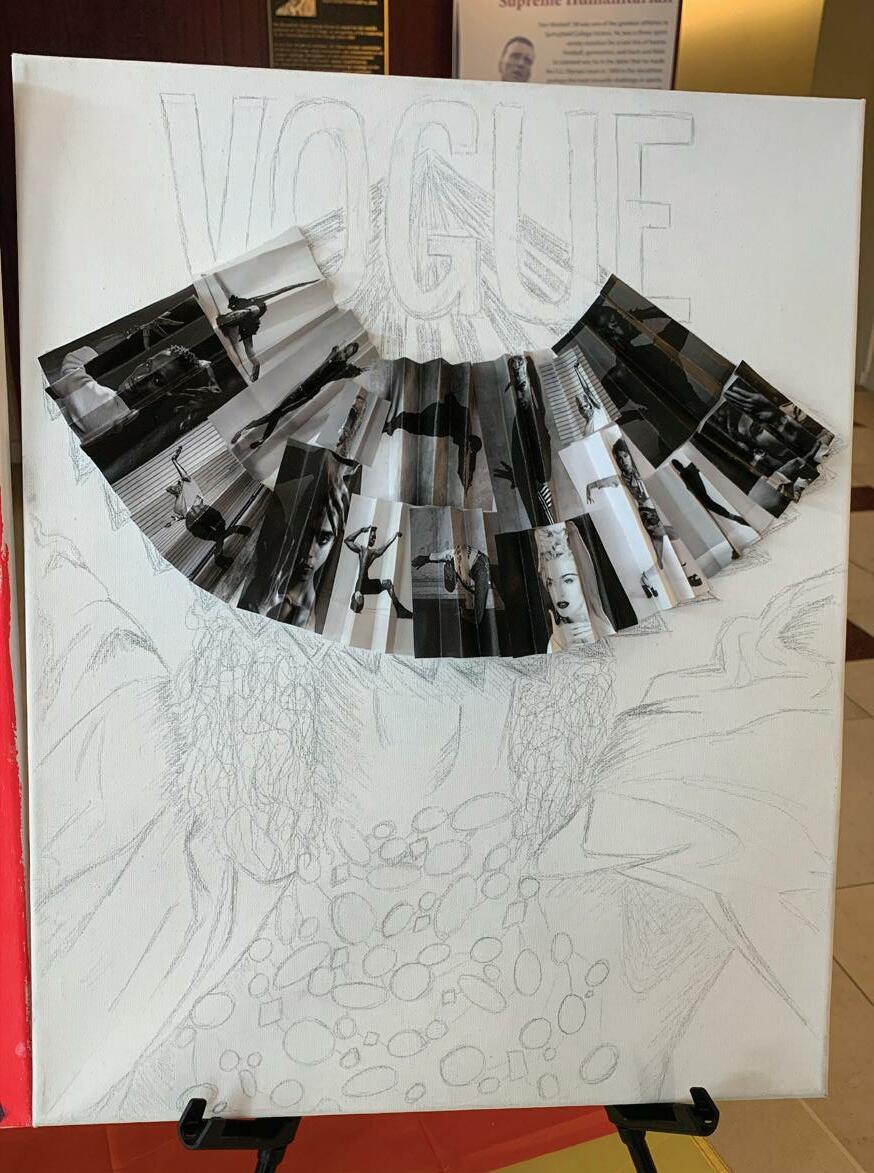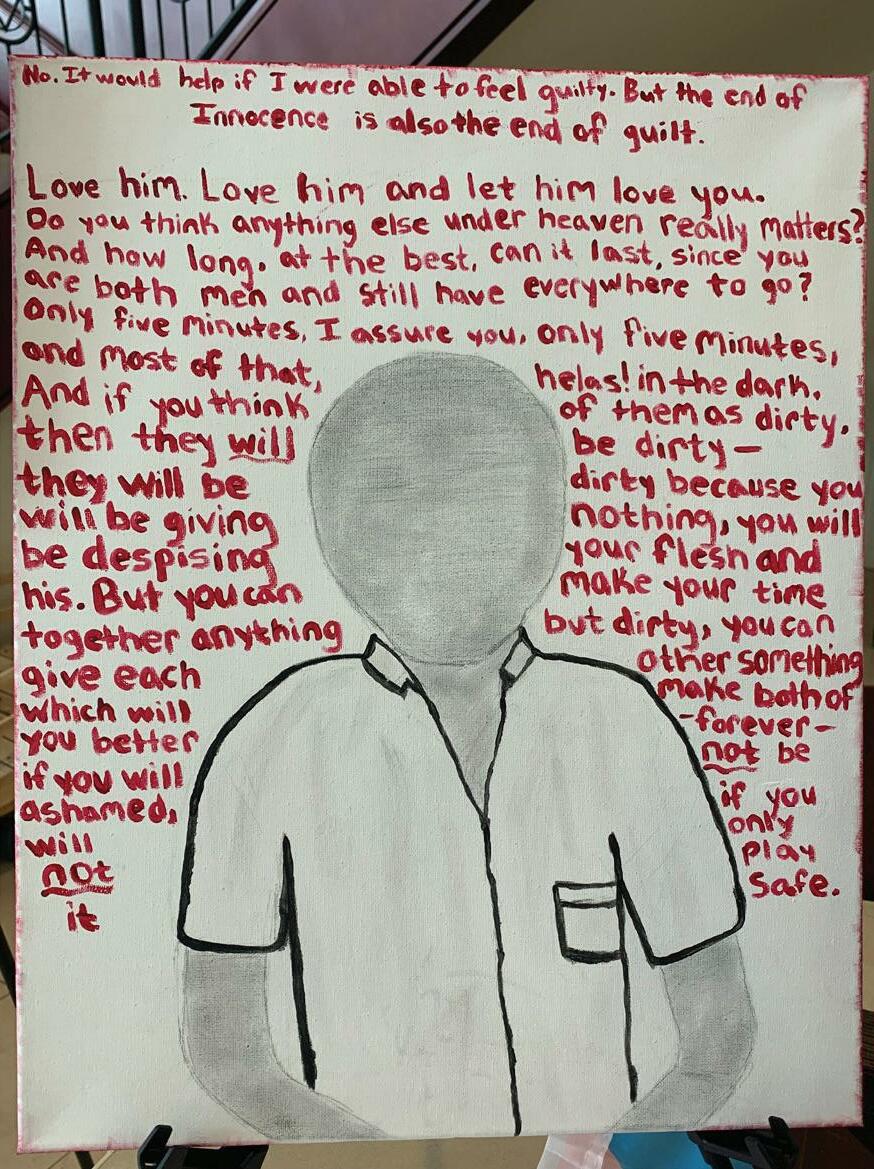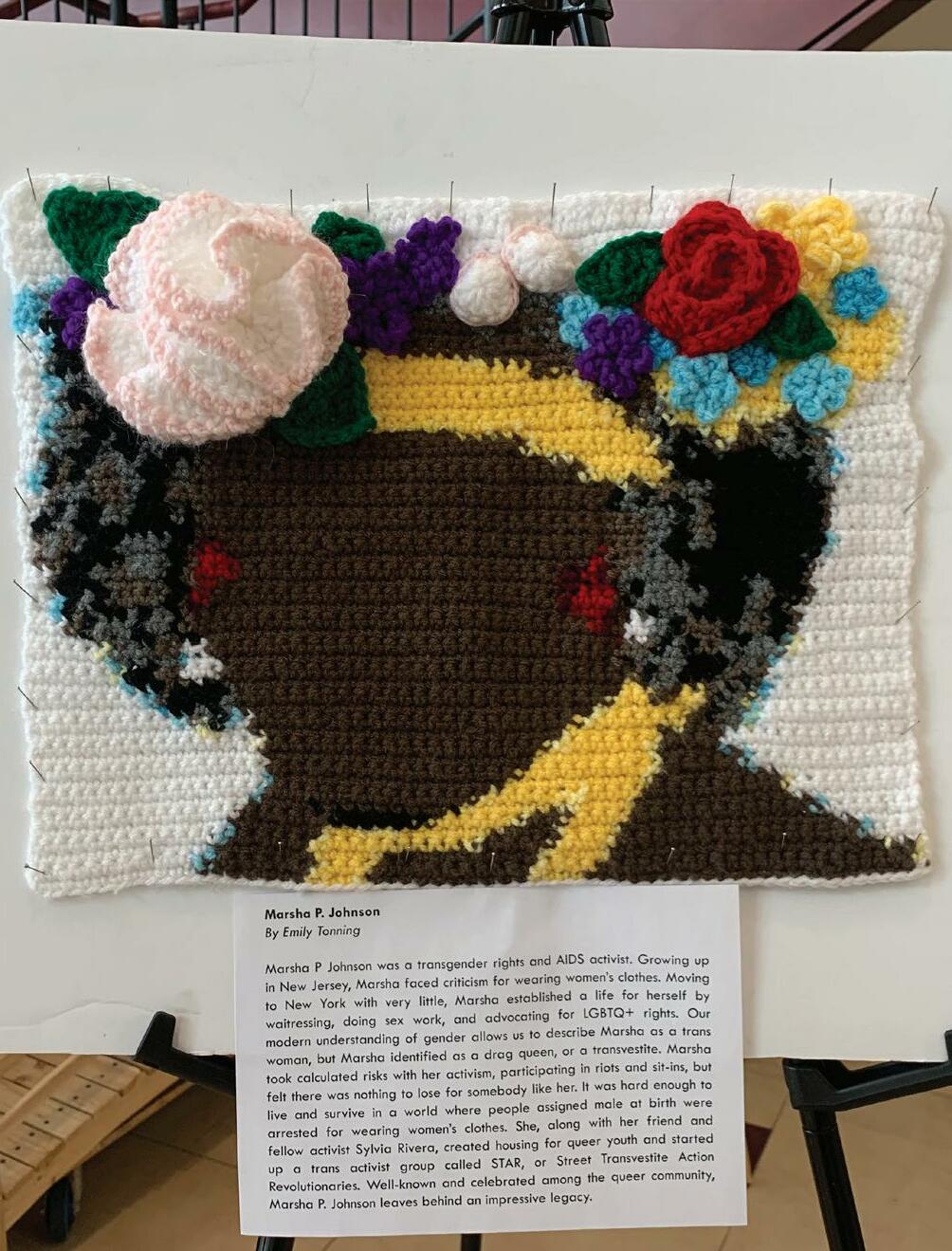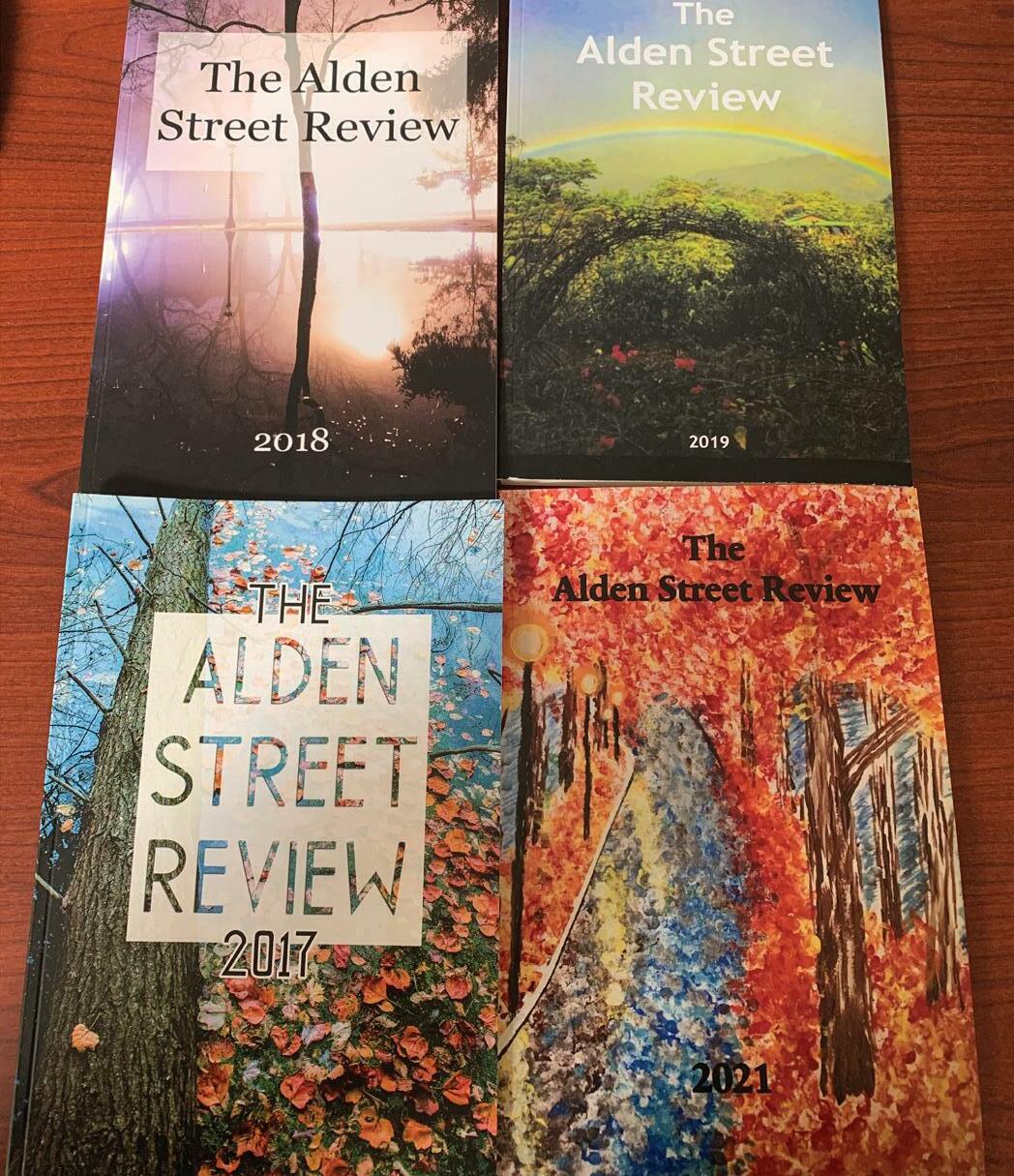
4 minute read
QueerCon photospread


Advertisement
QueerCon Art: Celebrating LGBTQ+ history
Dr. Anne Wheeler’s fall semester class, HNRS 192: Bars, Bikes and a Revolution focused on studying the importance of historic gay periods. These projects were done by students as a visual representation of events and people that helped to shape the future for the LGBTQ+ community. (Top Right) Lily Gould created this portrait of Leslie Feinberg, a Transgender and Genderfluid activist of the 1980s-1990s. Feinberg used their voice in protests, speeches, and writing to express their ideas about gender identity. They also published a novel in 1993 called Stone Butch Blues, giving an honest perspective about someone who doesn’t fall into any of the categories society deems acceptable. (Top Left) Angelina Cohen created a work of mixed media art to celebrate Will Ninja. Ninja was a pioneer in dance and “Vogueing”. He also founded House of Ninja, a dance troupe that welcomed young people of all backgrounds and identities. After passing from AIDS at age 46, his creation House of Ninja still lives on and advocates for HIV/AIDS awareness. (Right) Emily Tonning made a crocheted portrait of Marsha P. Johnson. Johnson was a transgender rights and AIDS activist who struggled discrimination and violence for dressing like a woman. She continued to express herself and fought for LGBTQ+ rights. Along with her friend Sylvia Rivera, she founded a trans activist group STAR (Street Transvestite Action Revolutionaries). (Top Middle) Nicole Henkel produced this artwork of James Baldwin’s work, Giovanni’s Room. An American author in the 1950s, Baldwin wrote pieces that captured the racism in the country. He was also a gay man, and one of the few that fought vocally in the Civil Rights Movement. His book, Giovanni’s Room, focused on the idea of being afraid to be who you are, so much that it makes it impossible. Still today, Baldwin’s work has had a great impact on the perspectives of LGBTQ+ and race issues in society.


An array of covers from previous editions of the Alden Street Review. (Carley Crain/The Student)
40 years and counting
The Alden Street Review is accepting submissions for the 2022 edition until Feb. 7.
__ By Carley Crain __ @carley_crain12
A group of students sit close together at a long table in Weiser Hall as they plan, strategize and create content for their upcoming edition of The Alden Street Review. Excitement fills the air. The literary magazine, which has been a part of campus for over 40 years now, is seeking submissions for its Spring release. Their identity isn’t just focused on writing, as the magazine is a collection of artwork, essays, narrative pieces and poetry.
The Alden Street Review gives students an opportunity to be creative in numerous ways. Many submissions are written pieces, but artwork and photography has also been a staple for every recent edition.
“We have really lively conversations about the writing, but we also have to collaborate, compromise and cooperate together,” said Emma Hallorah.
The club is run by English professor Justine Dymond, as well as co-Editors inChief Rowan Beckford and Emma “Bunny” Hallorah. They aim to make the magazine thought-provoking and integrating for readers through work that is enticing for the Springfield College community.
Submissions are also not just limited to students as the editorial staff for the Alden Street Review is encouraging teachers, faculty and staff to also create written pieces or artwork for the magazine. In the 2020 edition, the magazine featured multiple pieces done by professors in the English department, such as Alice Eaton’s poem, Star, and Donna Laviolette’s numerous photographs.
An author can choose to send in their pieces anonymously if they are worried about privacy since many submissions tend to be about sensitive topics. Angelica Core’s narrative from the 2020 edition, He Loves Me, He Loves Me Not, is one example of the power of vulnerability.
Her piece was about the abusive relationship she was in during her freshman year of college. Publishing a piece like this opens the door for many women to feel comfortable speaking up about their experiences. Writing has proven to be an activity that helps people gather and take control of their thoughts.
The magazine has recently seen many submissions centered around social justice issues, and the staff is hopeful that this will continue. At a college like Springfield, where many are invested in diversity, the editorial staff wants to make sure they are actively creating an inclusive and welcoming environment.
“It is amazing the amount of talent we have on campus, and it’s not always in those specific majors exclusively,” said Dymond.
If you are interested in submitting a piece for The Alden Street Review for this upcoming edition, email it to aldenstreetreview@gmail. com by Feb. 7. The staff asks for written pieces to be typed and under 1,500 words.




